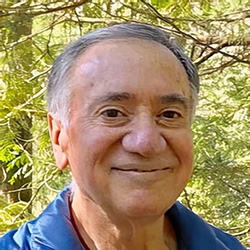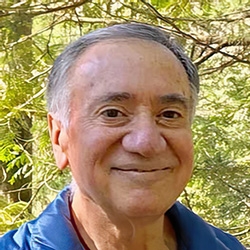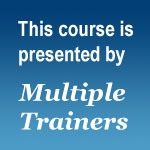
Search Results: force
-
In Nonviolent Communication "power over" refers to the use of power to dominate or control others. It is a form of violence or force, whether physical, emotional, psychological or otherwise. This learning tool has six lists, each containing different types of power over strategies: physical, sexual, intimidation, economic, emotional, isolation.
-
Come. Let us journey together into our own authentic Life force: the essential living energy that permeates all of our lives.
Your journey will begin at the center: with the divine / life force, or soul force.
Robert Gonzales shares how this fundamental life energy is the tender expression of your inner being, or soul. It unfolds through the heart as your deepest longings, which manifest themselves in all forms of human needs and values. When you live from the energies of compassion, creativity, love, and clarity – while remaining wholly grounded and aware of needs and values – then you are living your passion… You are living the Self-In-Life.
-
We can't alone (nor with lone communities) transform the hidden structures of violence and domination. Dialogue alone isn't disruptive enough. We can easily be in dialogue with Trump supporters while the planet burns up, millions are still hungry, and we go extinct. NVC seriously risks reinforcing vast inequities and abuses if we're not radically engaging systemic constraints, and impacts of our choices that go beyond our immediate circle. Read on for ways to leverage NVC practices to expand true social change.
-
NVC practice is based on several key assumptions and intentions. When we live based on these assumptions and intentions, self-connection and connection with others become increasingly possible and easy, helping us contribute to a world where everyone’s needs are attended to peacefully.
-
In this introduction to Nonviolent Communication (NVC), Wes Taylor discusses the two basic aspects of NVC, the consciousness and the tools that help manifest the consciousness.
-
Veteran CNVC Certified Trainer, Sylvia Haskvitz, reviews the key distinctions (sometimes referred to as the key differentiations) in Nonviolent Communication.
-
Listen to Robert describe the five core principles of Living Compassion and the relationship of needs to spirituality. Great material for reflection and reference!
-
CNVC Certified Trainer Lore Baur asks: "Have you ever seen something happen that made you feel uncomfortable and you didn't know what to do?" That's the "bystander effect:" a well-researched and commonly experienced phenomenon. Training can help you overcome it, enabling you to discern what to do and how to support others in ways that reduce trauma and increase safety.
-
Perhaps human violence persists because we believe that violence is inevitable and there's nothing we can do about it -— even though there is notable evidence that this is likely not true. Read on for some research and theory on how cultures evolve to be collaborative or violent. Plus, learn benefits of collaboration and downsides to force, punishment, and control. These provide implications for how we might move towards a culture of more peace.
-
Many believe it's only a true NVC request when we can ask for what we need without urgency or insistence. But what if we're the target of oppression and hate in a world with systemic inequality? Is it still nonviolence to abdicate power by allowing the person enacting harm to be the one to decide whether harm continues? The intensity of the need, degree of harm, and how chronically unmet the need is, are factors to guide us for when to apply force and demand within NVC. We can be attached to outcome, without being attached to strategy.
-
CNVC Certified Trainer Lore Baur shares how, as a teacher, the classroom is a laboratory for learning NVC and incorporating the NVC consciousness into the classroom. Topics discussed include empathy, permission to educate, protective use of force, corrective action, choice & options and re-do.
-
How many times do we fall into the same hole, hit the same wall, get entangled into the same patterns? There seem to be hidden forces within us that keep unconsciously leading us, again and again, into the same melody of our lives. In this session, we will try to see our life-journey as a whole and rehabilitate our capacity to be in this existence of ours more directly and fully.
-
- Deepen your capacity for self-acceptance and self-compassion
- Bring greater compassion to your relationships
- Increase your capacity for vulnerability and mourning
- Enhance your sense of trusting your own place in life, as well as your purpose
-
During this very moving session, you'll dive into Robert's exercises for supporting connection to your true self as opposed to your conditioned self.
-
What could be, more often than not, overlooked when we think about or represent NVC or Marshall Rosenberg's work? This article busts some commonly held ideas and approaches to NVC. It challenges us to widen the lens of what it really means to be "life-serving", or speaking and hearing the "language of life". And it also speaks to how thinking can deepen feeling and relatedness...
-
If we're to have a better future, our biggest task will be to reexamine what the police are, their place in the system, and more. Police violence exists by systemic design. The myths of where the problems and symptoms lie with the police, capitalism, laws, government, citizens, class and racism --plus the relationship between all these-- is what keeps oppression ongoing on a mass scale. For change to happen, we'll need to find systemic leverage points, and use privilege to benefit those without it. Read on for more.
-
Listen to this 4-session telecourse recording with CNVC Certified Trainer, Hema Pokharna, PhD and her sister, Manda Pokharna, MD, and you will learn simple steps for transforming conflicts and mobilizing peace at home, at work and in the world.
-
In this excerpt from Roxy Manning's 2019 Social Change session at the NVCfest, she explores the application of Nonviolent Communication (NVC) to address both immediate conflicts and broader systemic issues. She emphasizes the importance of intervening at multiple levels, from stopping harmful behavior in the moment to driving long-term societal change.
-
This article aims to discuss shifting fully from power-over to sharing power in families; turning power struggles into dilemmas. It focuses on the topic of living in a partnership paradigm as a family...
-
The human species is trained and habituated towards separation. This model encourages humans to either give up on their needs or fight for their needs. In this short video, Miki shares how increasing capacity shifts habits of separation and supports holding of all needs. Through intensive lifelong practices we learn to increase our capacity to receive and to increase our capacity to be generous supports our overall capacity to hold all needs.




















